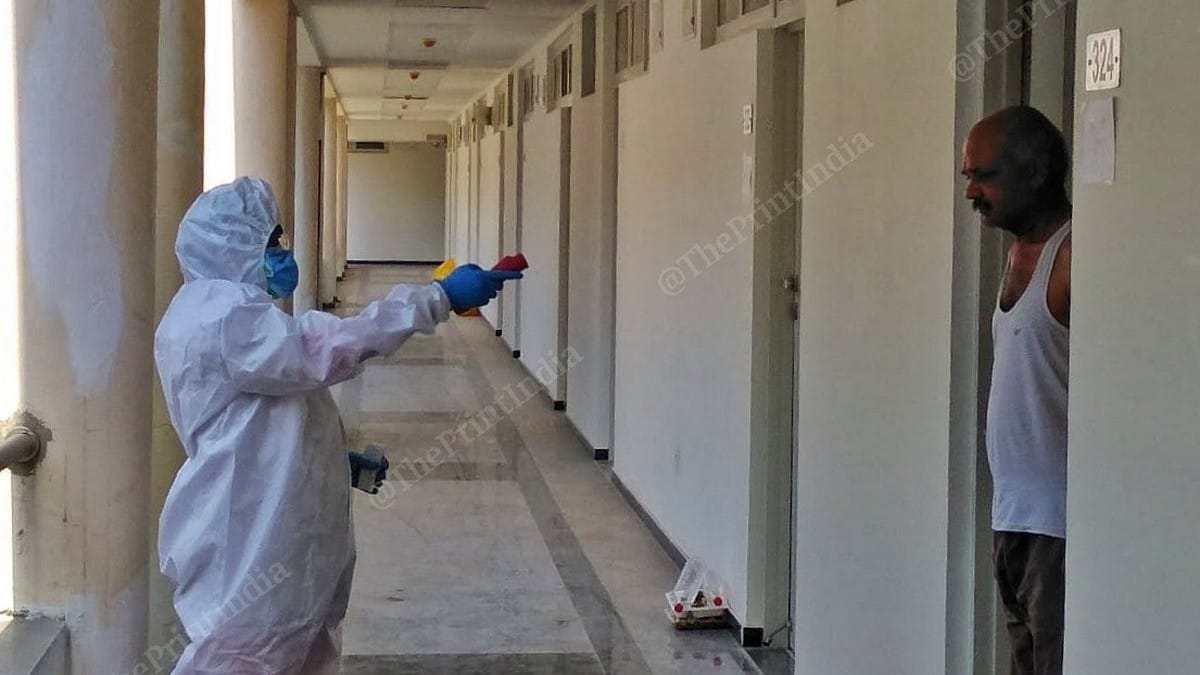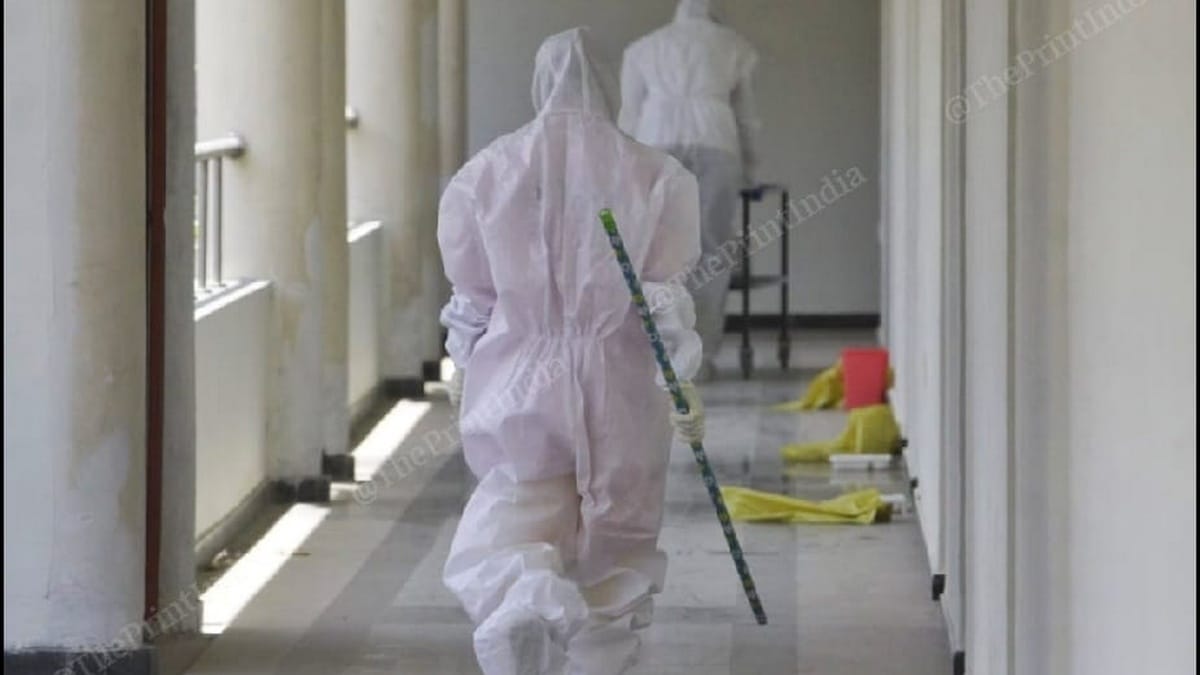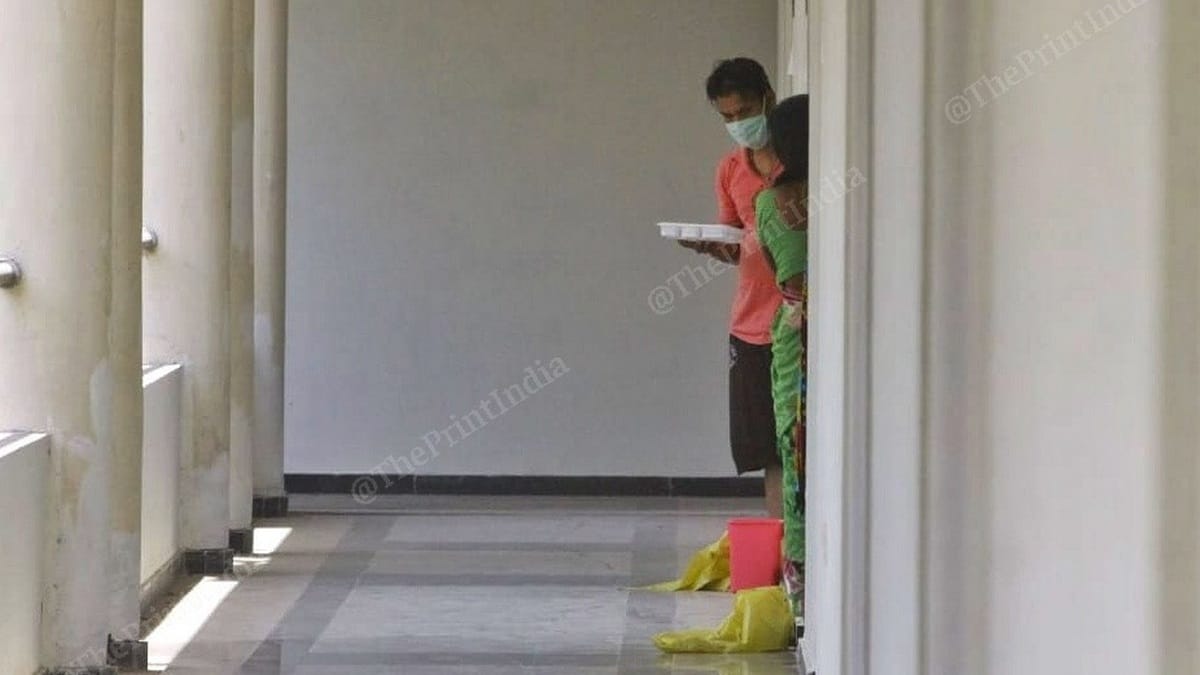Vadodara: Being struck by Covid-19 as the pandemic rages around the world is a strange feeling. There’s a false sense of invincibility that comes with wearing the mask and gloves and keeping your distance while doing the job, and all of that is immediately crushed by a positive diagnosis.
When our reports came out positive on 29 April, we were evacuated from the Vadodara circuit house where we were staying, and shifted to another quarantine facility. Doctors and staff gathered around as we descended the stairs, our heads hanging in shame… Phones were whipped out to document the newest Covid-19 patients as we climbed into the ambulance that had been arranged for us. Within hours, our roles as journalists and the public had been reversed.

The first feeling, naturally, is one of slight disbelief. Despite taking the calculated risk of going out there, and accepting the possibility of testing positive, the moment of diagnosis caught us off guard. But the three of us — our brilliant photographer Praveen Jain, driver Anil Kapoor and I — moved through the motions quickly. After disbelief, came a bout of guilt, and then regret — how many people did we pass it on to unknowingly? How many stories will go untold now? And then, finally, we decided to treat our circumstances with a sense of amusement.
After spending two relentless weeks documenting how the Covid-19 pandemic unfolded across Rajasthan and Gujarat, we will now spend the next two twiddling our thumbs and waiting for the virus to leave our systems. It will be another story to tell.
Also read: Journalist who visited Bengaluru hotspots among 15 new Covid-19 cases in Karnataka
How it all began
On the night of 27 April, when we came to Vadodara from Ahmedabad — a distance of about 110 kilometres — Praveen complained of feeling slightly feverish, and I noticed that Anil had developed a slight cough.
“If you’re feeling feverish, let’s not do any reporting. It could be Covid,” I said to Praveen, who snapped, “Why jump to conclusions about whether it’s coronavirus? Let’s be sure before we worry.”
Almost as if on cue, Praveen received a message from a Vadodara-based reporter who said the government was conducting a testing camp for journalists in the city the next afternoon. At 12:45 pm on the 28th, we drove to the site where a small group of journalists had lined up to be tested.

Many were in awe of Praveen, and rightly so. I joined him and Anil only two weeks ago, but their journey had begun soon after the lockdown was announced on 24 March, when they set off to cover Uttar Pradesh. Curious journalists from the local media approached Praveen for interviews, asking what his experience of being on the road was like.
Twenty-four hours later, this same material would be used to accuse him (and the two of us) of spreading the virus far and wide!
The test was largely uneventful — we were poked and prodded with throat and nasal swabs and then sent home. But the hours after that were filled with uncertainty and back-and-forth about whether we could or couldn’t be Covid-19-positive. The slight fever Praveen had felt, which subsided quickly, might as well have been from exhaustion — he had been on the road for over a month already.

We spent the time wondering how close was close enough for the virus to pass; we hadn’t touched anybody or been around coughing people. We had sanitised as often as we could, stayed at least one metre away from the people we spoke to, wherever possible. And now we’d tested ourselves at the slightest suggestion of a symptom, and cancelled our day’s plans until the result came.
We vowed to be “extra, extra cautious” if the result was negative, and stocked up on oral rehydration solution and fruits to stay hydrated and well-fed. Unfortunately, the result cut all our plans short.
The next two weeks
We have been put up at Vadodara’s High Speed Rail Training Institute. The facility is large, well-lit, and clean. Food and medication is served to us gingerly by doctors and nurses in hazmat suits. No one dares to come into our rooms, and anything we need is left outside our doors.
Before the pandemic struck, the facility was to serve as a training ground for India’s future high-speed railway workforce. Now it hosts dozens of Covid-19 positive patients, including the three of us.
Needless to say, much like everything else, these plans have been derailed.
Also read: Journalists must not resist Covid test. Let’s not become the story ourselves

